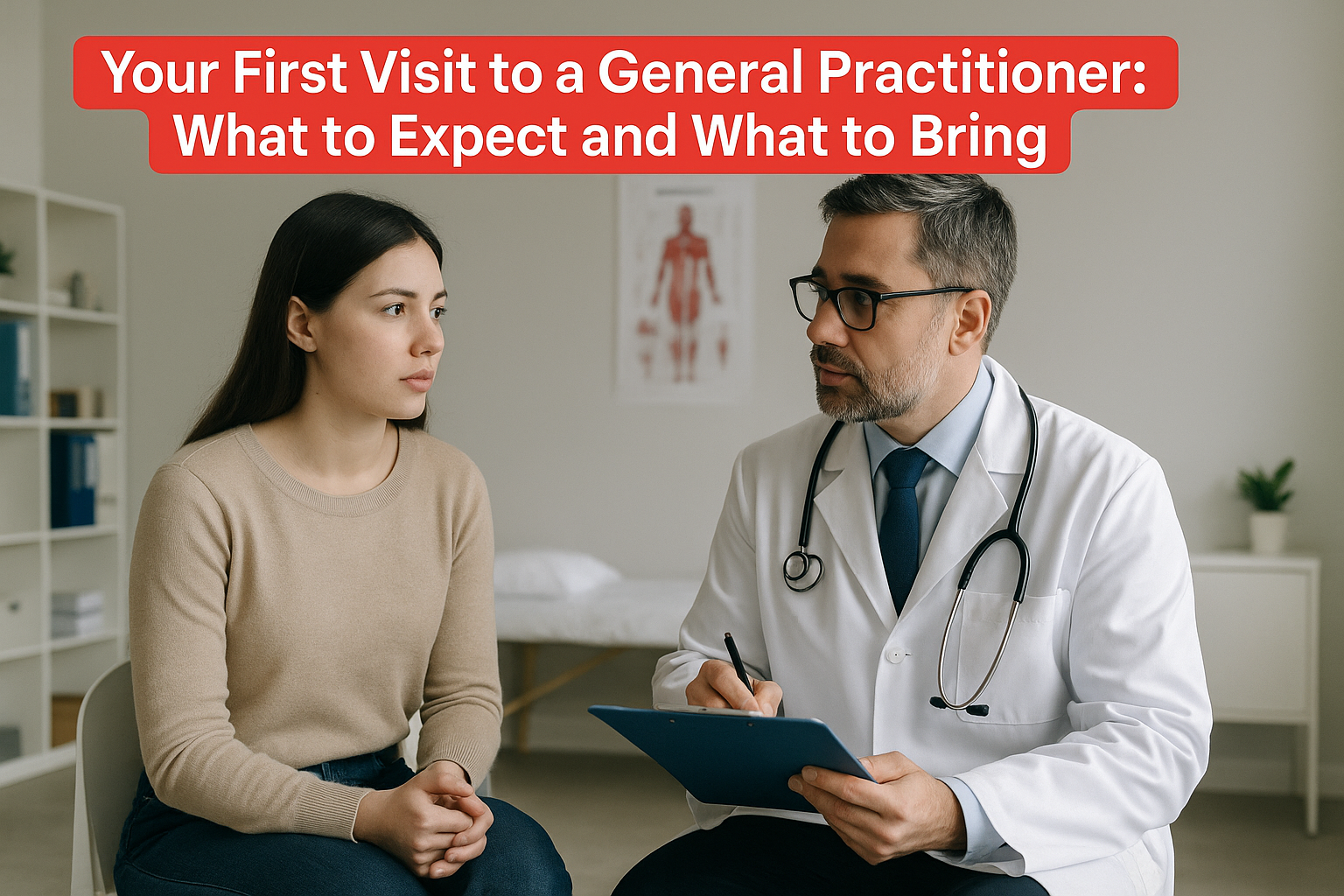
-
Posted By admin
-
-
Comments 0
Your First Visit to a General Practitioner: What to Expect and What to Bring
Stepping into a healthcare facility for the first time to meet a general practitioner can be a mix of anxiety and anticipation. Whether it’s for a routine health check-up or to investigate lingering symptoms, knowing what to expect can help you feel more confident and prepared.
This comprehensive general practitioner visit guide walks you through everything you need to know—how the appointment works, what documents and items to carry, and what kind of care to anticipate during the visit.
The Role of a General Practitioner
A general practitioner (GP) plays a pivotal role in maintaining individual and community health. As your primary healthcare provider, a GP can:
- Diagnose a wide variety of common illnesses and conditions
- Recommend and interpret basic medical tests
- Prescribe medications and lifestyle changes
- Refer patients to specialists when necessary
Visiting a General physician Ajman can offer reliable medical advice and consistent health tracking, particularly if you live in the UAE and want accessible care close to home.
According to the World Health Organization, strong primary care systems, including GPs, can resolve over 80% of healthcare needs, reducing the burden on hospitals and improving patient outcomes.
What Happens During Your First GP Visit
Your initial consultation usually follows a structured process designed to understand your overall health condition. Here’s what you can expect:
Registration and Patient History
Upon arrival, you’ll be asked to register your details, including:
- Full name and contact information
- Emirates ID or other identification
- Insurance information
You may also be required to fill out a brief medical questionnaire, including your family history, past illnesses, ongoing medications, allergies, and recent symptoms.
Basic Vitals and Pre-Check
A nurse may carry out a basic health screening before the GP sees you. This includes:
- Blood pressure measurement
- Heart rate and temperature check
- Height and weight recording
These initial screenings help establish a baseline of your health.
One-on-One Consultation
The GP will sit down with you for a thorough discussion. Be prepared to answer questions like:
- What symptoms have you been experiencing?
- When did they start, and how severe are they?
- Are you taking any over-the-counter or prescription medications?
- What’s your daily routine like (diet, sleep, exercise, etc.)?
This part of the visit helps the GP understand your health holistically and recommend the right course of action.
Diagnosis or Further Evaluation
Depending on your symptoms, the GP may:
- Make an immediate diagnosis
- Recommend basic laboratory tests
- Refer you to a specialist
- Suggest a follow-up visit
What You Should Bring With You
Being well-prepared can make your visit more effective and avoid unnecessary delays. Use the following table as a checklist:
Item | Purpose |
Emirates ID or Passport | For registration and patient identification |
Insurance Card | To confirm coverage and benefits |
List of Current Medications | Helps avoid prescription conflicts |
Previous Medical Reports | Useful for chronic or recurring conditions |
Notes on Symptoms | Improves clarity during consultation |
Carrying these essentials ensures the GP has all necessary information for accurate evaluation and care.
Tips to Maximize Your First Appointment
Be Honest and Transparent
The more accurate your responses, the better your GP can understand and treat your condition. Be open about your medical history, lifestyle, and symptoms.
Arrive a Little Early
Arriving 10–15 minutes before your appointment helps avoid last-minute stress and gives you time to fill out forms.
Write Down Your Concerns
Before your visit, note down any symptoms or questions. This helps you remember key points and make full use of your time with the doctor.
Follow Recommendations Diligently
If your GP suggests tests or follow-ups, make sure to complete them promptly to avoid complications or delays in treatment.
Why Choosing a Local General Physician in Ajman Matters
Selecting a General physician Ajman ensures that you receive convenient and timely medical care without having to travel far. Ajman offers a growing number of qualified clinics equipped to handle general health check-ups, diagnostics, and long-term care under one roof.
Key Takeaways
- Your first visit to a GP involves registration, a basic check-up, and consultation
- Bring ID, insurance, medication list, and previous reports for a smooth experience
- Be honest and proactive about discussing symptoms and lifestyle
- Choose a qualified General physician in Ajman for trusted and accessible care
- Use this general practitioner visit guide to feel prepared and confident
“The good physician treats the disease; the great physician treats the patient who has the disease.”
— Sir William Osler
FAQs
1. What is the difference between a general practitioner and a specialist?
A general practitioner is a primary care physician trained to diagnose and treat a wide range of common conditions. Specialists focus on specific organs or conditions like cardiology or dermatology.
2. Do I need an appointment, or can I walk in?
While some clinics accept walk-ins, booking an appointment is highly recommended to avoid long wait times and ensure personalized attention.
3. What if I forget my medication list or reports?
It’s always best to bring them, but if forgotten, try to recall as much information as possible. You can also send the documents later if needed.
4. Can the GP order blood tests during the same visit?
Yes, most general practitioners can recommend or directly arrange basic blood tests during your initial visit based on your symptoms.
5. How often should I visit a general practitioner?
It is advisable to see a GP annually for a routine check-up, or more frequently if you have ongoing health concerns or chronic conditions.
If you’re preparing for your first consultation, let this general practitioner visit guide help you make the most of your appointment and start your journey toward better health with confidence and clarity.


